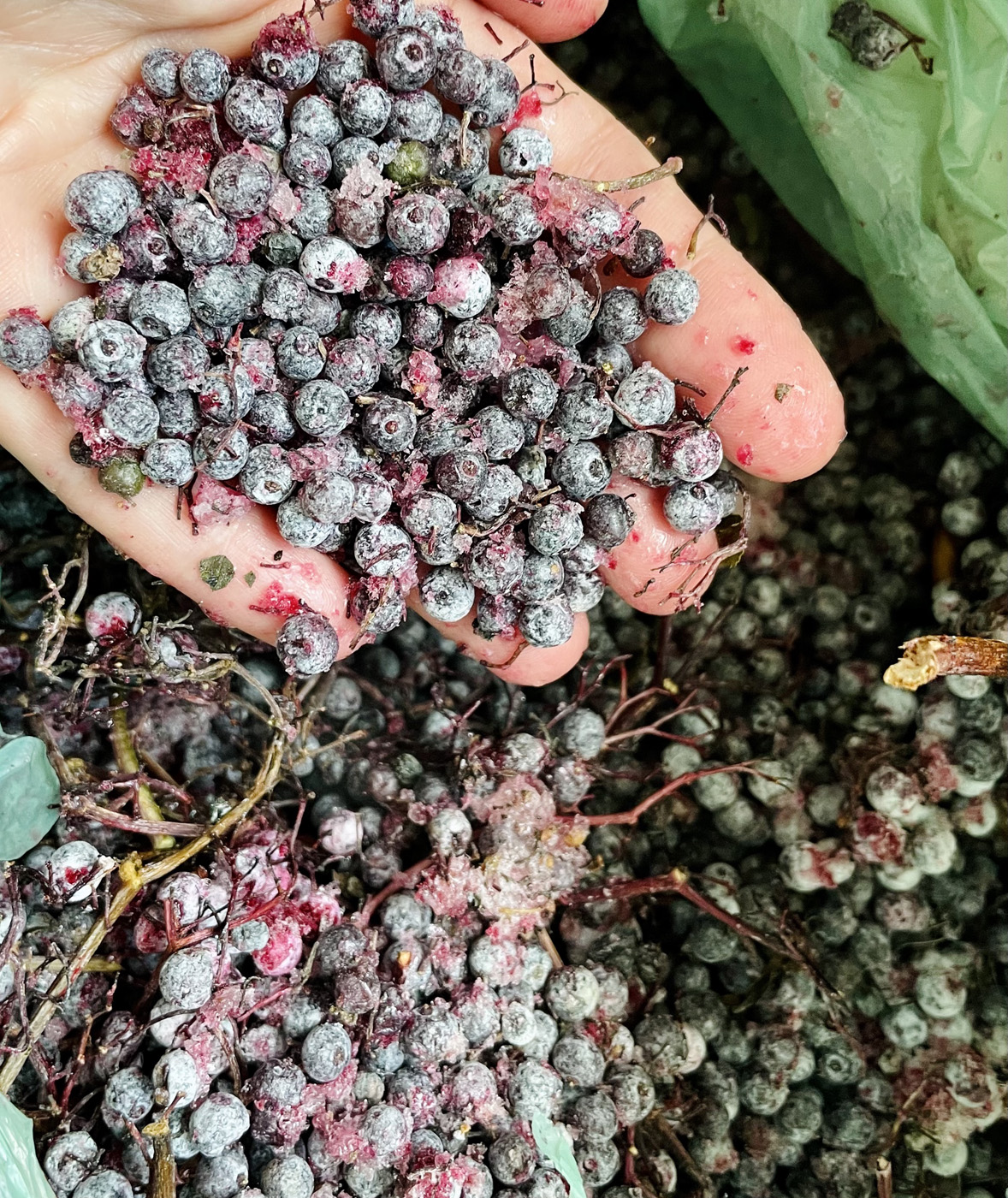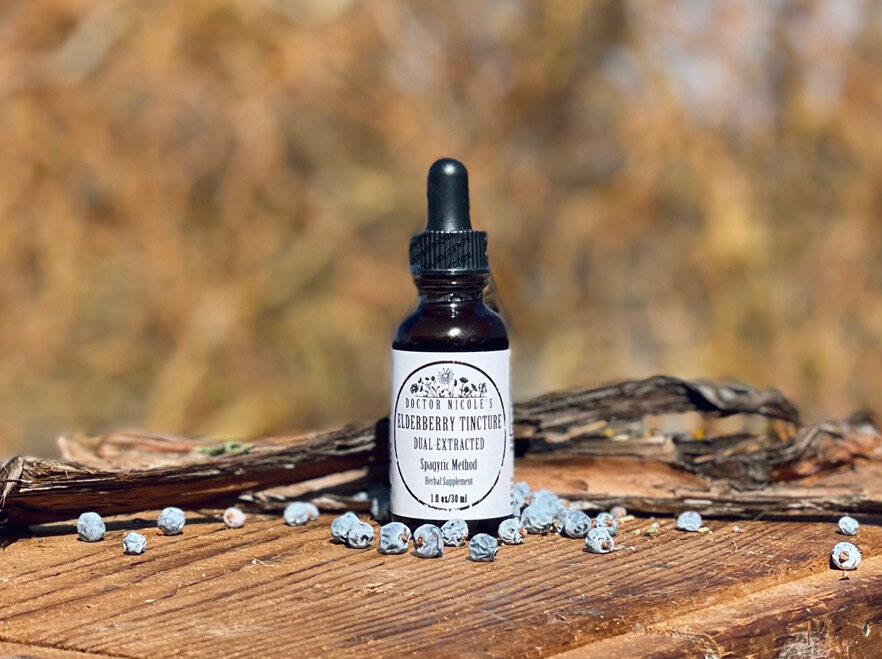Elderberry: A Powerful Medicinal Herbal Remedy
As many of you know, elderberry is one of my favorite herbs for avoiding and treating contagious illness. My family always takes it when we are out and about in public, traveling, or if we feel a bug coming on. It’s one of the best antiviral herbs on the planet. Beyond shortening the duration of cold and flu, the elder plant is also helpful for inflammation, chronic fatigue, allergies, nerve pain, cancer and more. Importantly, elderberry can be used by those who have an autoimmune disorder — unlike other medicinal herbs that may be a trigger such as echinacea, goldenseal, and astragalus. It’s an all-around powerful remedy that should be in every medicine cabinet!

Elderberries frozen to make it easier to remove from stems
Fun Facts and Traditional Uses
Native to Europe, Africa, and areas of Asia, elderberry trees can also be found in the US. It is believed that the plants arrived to these areas by retreating glaciers in 9000 BC. It thrives in woodlands and hedgerows. The tree can grow up to 30 feet (9 meters) tall and has beautiful sprays of creamy-white flowers and bunches of bluish-black berries. Elderberry contains the antioxidant flavonols quercetin, kaempferol, and isorhamnetin, with the flowers containing up to 10 times more than the berries. The berries are also rich in anthocyanins, which provide strong antioxidant and anti-inflammatory benefits.
The berries and flowers also have a long culinary tradition of use! Cooked berries are often made into jams, chutneys, juice, pies, and wine. Elderberry flowers can be infused into a tea or boiled in sugar for a sweet cordial — see the recipe below from my book, The Forager’s Guide to Wild Foods, Edible Plants, Lichens, Mushrooms, and Seaweeds.
Recipe. Elderflower Cordial: Boil water in a pot and dissolve 1 lb. sugar (500g). Remove from heat and mix in: 20 fresh elderflower heads, 25g citric acid, 1 zested and sliced lemon. Cover and steep for 12-24 hrs. Drain liquid through a cheesecloth and bottle.
Outstanding Protection and Treatment for Colds, Influenza, and Respiratory Illness
Since inflammation and immune system dysfunction go hand-in-hand with autoimmune disorders, I have to be careful about avoiding the latest bug making the rounds. This is why elderberry is an important part of my family’s health protocol — especially when we are in public. My family and I take it as a preventative before and after engaging with the world and other people. It helps to keep us healthy year-round, but particularly during the cold and flu season.
Black elderberry extract has been shown time and again to reduce the severity and length of a cold and influenza . In one study, 60 people ill with the flu who took 15 mL of elderberry extract four times a day experienced symptom improvement in 2 to 4 days, while it took the control group 7 to 8 days to improve. Moreover, a double-blind placebo controlled clinical trial involving 312 air travelers who took 300 mg elderberry extract three times a day found that the participants who did fall ill with a cold or the flu recovered faster and had less severe symptoms.
One concern during our current pandemic is that elderberry may overstimulate the immune system and create a ‘cytokine storm’. However, a systematic review of data found that elderberry is a safe option for treating viral respiratory illness, and that there is no evidence the medicinal herb over-stimulates the immune system. In fact, another study published in the medical journal Autoimmunity Reviews believes that “the use of elderberry supplements should be considered at an early course of the disease”. I highly recommend you give this fascinating study a quick read!

All Elderberry Extracts Are Not The Same
Unlike many elderberry products on the market, the tincture found in my apothecary isn’t formulated with a sugar or honey syrup base. Instead, the full-spectrum of beneficial properties are accessed through our dual-extracted and spagyric methods, which create a superior alcohol and glycerite-based extract that has the additional benefit of a very long shelf life. We offer elderberry as a stand alone tincture or included within my Travel Pack, Winter Defense, and Warrior bundles. Visit the apothecary today to learn more.
Wishing you an abundance of health throughout this season and beyond!
Nicole Apelian
Safety
Our elderberry tinctures are not toxic, but If gathering it yourself, note that each part of the plant is mildly toxic. Do not use the fresh plant without first cooking or drying. The bark and root should never be taken internally. Elderberry leaves and unripe berries are poisonous




